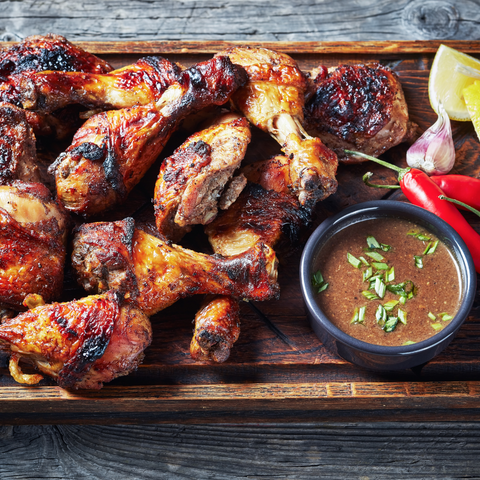Are you worried about what to say when the wine waiter asks you to taste the wine? Or just want to join the conversation at a dinner party when everyone else is throwing wine words around?
Look no further – here are 5 wine tasting hacks to make you look like an expert!
- Don’t overfill your glass – make sure you leave plenty of room above the wine for the wine to ‘breathe’.
- Hold the glass by the stem and not by the bowl. Especially if it's a white wine. Your hands will warm the contents.
- Before diving in, swirl the wine around very gently, to release the aromas, then stick one nostril into the top of the glass and have a little sniff. (See our crib sheet below for possible aromas you might identify)
- Take a little sip and take time to swirl it around your mouth. Think about the aftertaste it leaves on the sides of your tongue, the middle of the tongue and the mouth as a whole. Does it coat your whole mouth in many places, or do the flavours dissipate quite quickly?
- Check the label for clues. Hot countries will produce sweeter grapes – so more of the sugar turns to alcohol – so generally reds will be fuller bodied, higher in alcohol and have more jammy or concentrated flavours than red wines made in cooler climates. The same is true for white wines.
Wine words to make you sound like a pro
Smelling and sniffing a wineSay 'on the nose'. Ie - "There's lots of red fruit on the nose. "
Tasting a wineSay 'on the palate'. Ie. "I'm getting lots of citrus on the palate."
You can also talk about the 'mouthfeel' to describe how full bodied or light the wine feels.
Words for describing Red Wine
Fruity, spicy, chocolatey, full-bodied, punchy, lighter bodied, subtle, smoky
Fruit aromas and flavours that are commonly associated with red wines
Strawberries, raspberries, plums, blackberries, blackcurrants, cherries, dried fruits
Words for describing White Wine
Aromatic, fragrant, citrus, floral, fruity, fresh, crisp, elegant.
Fruit aromas and flavours that are commonly associated with white wines
Mangos, peaches, apples, apricots, gooseberries, pears, lychee, citrus fruits, pineapple.
Words to Avoid as a general description of a wine styleDry, Medium, Sweet
The terms date back to the early years of wine drinking in the UK pubs and bars and are not really relevant today unless in a specific context. The British palate has changed significantly over the last couple of decades - and most of the white wine now on the market would be considered to be 'dry'. This does not, however, tell us anything about how acidic it is or how fruity.
I'm not sure that a 'medium dry' wine really exists - although there are wines that are more fruit forward or more aromatic - or made with grapes such as Muscat which taste less dry perhaps even if their total sugar content is the same as that you would find in a Chardonnay.
Sweet wines generally refer to dessert wines these days.
In general it is more useful to try to identify the wine by its acidity, alcohol and fruit flavours rather than using the terms dry or sweet.
Clearly there is so much more that could be said about the delicious art of Wine Tasting - and ultimately, sounding like a pro is not the end goal. Thinking about what you are drinking and identifying the wines you love is much more important!
Have any questions about any aspect of wine or wine making? Feel free to ask!
Why not try one of our mixed cases to get you started!




Comments (0)
There are no comments for this article. Be the first one to leave a message!